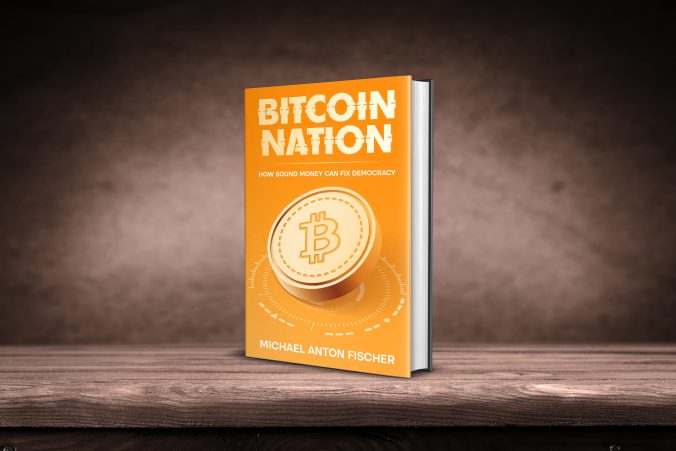My new book “Bitcoin Nation” was published on the 15th anniversary of the Bitcoin Whitepaper, October 31, 2023. You can read it below, one chapter per week. Or buy it here:
In the following chapter, we will take a mental journey through the next decades and centuries, under the premise that Bitcoin Nations become a reality. This journey will obviously not happen as predicted, it is meant as an inspirational exercise. If I do my job well, you will hopefully return from this trip burning with excitement for Bitcoin Nations and ready to work hard on making them a reality.
It is the year 2042. The United States of America have just announced that they will now be extending their digital citizenship program with a real estate option.
Citizens paying for the top-tier membership will now have the option to convert any landownership
they have to US territory. Shortly after, the UN ratified a note clarifying that the US move is covered by the right to self-determination.
Any citizen who converts property in countries who signed the UN note will be able to convert the land to US soil. Upon payment of a small fee, the title will be transferred within 30 days. Property taxes, will be guaranteed to be less or equal to the current property taxes for the first 20 years.
For “national security reasons”, it is agreed that conversions between nationalities are only possible for territory outside the US mainland.
As a result of this last addendum China, Russia and many Brics nations refuse to ratify the UN note and instead propose their own digital citizenship concept. They do not enable to fully transfer territory between each other, but rather allow to rent territory for max. 99 years for private and 50 years for commercial use. Rented property is essentially treated like a consulate of the digital citizenship nation.
Over the next decade, the competition for skilled labor and investment forces more and more nations to allow territorial sovereignty. The big states, China and US, gobble up more and more digital citizens until they encapsulate over 60% of the total population.
In 2062, the growing tensions between the two giant nations results in a crisis, with more and more digital citizens moving into the competing mainland. Pressure is mounting that the mainland exception clauses are deprecated.
With the danger of WWIII increasing daily, diplomats are desperate for a resolution. In an unexpected turn of events, a delegation from the Bitcoin Nation sends an offer to both territorial market leaders.
The following deal is proposed:
All 2 billion members of the Bitcoin Nation, whether they already have any other digital citizenship or not, offer to subscribe to a digital citizenship by whichever of the big nation offers it certain privileges.
Since, the Bitcoin Nation accounts for only 20% of the world population, but 51% of global GDP, this deal is irresistible and the United States make an offer. This offer is quickly followed by a better Chinese counteroffer.
After several weeks of negotiations, the UN note is updated to now allow all digital citizens to switch their territory to a nation of their choice. To prevent a new colonialism, where nations coerce their citizens to let the government inherit property, a market solution for property ownership is found. Private residential property can be only passed on to heirs that also inhabit it. Otherwise, every property is put up for auction regularly, where corporations, citizens, and nations can bid on a property ownership, limited to a max term of 99 years.
This moment will later go down in history, as the moment when large-scale wars were finally ended.
This new system greatly favors the Bitcoin Nation, which by the year 2140 has acquired 80% of the population. It is not a giant super state, however.
The Bitcoin Nation only offers a very basic human rights protection service and diplomatic services with all the small independent nations.
All other topics are federally organized in location and preference-specific clusters that have not much in common at all.


Leave a Reply